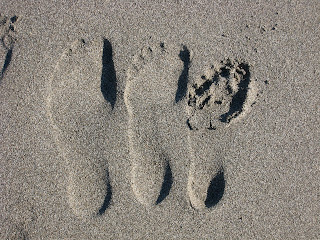For being such an incredibly affluent country, the quality of nutrition in the U.S. is shockingly poor. Carbonated syrupy drinks (concocted according to secret recipes), sugary treats, processed, fast-food meals, junk food - you name it and it is available for purchase - is often cheaper than real food. This is evidenced by the state of health of the average American citizen, especially the health of the next generation - the American children. According to U.S. government statistics, nearly one in three children in the United States is obese or overweight. Over the past three decades, the incidence of childhood obesity has tripled. In the U.S. in the 90ies many schools stopped offering physical education classes. Doctors are diagnosing illnesses in children that previously have only been found in the adult population: high blood pressure and type II diabetes. Over $150 billion a year is spent in the U.S. to treat obesity-related health conditions. The U.S. economy is impacted by the substandard nutrition of American employees through absenteeism and lower productivity. Even U.S. national security is affected by the nutrient-poor, high-calorie diet of its citizens! Military leaders report that one of the main disqualifiers from military service is obesity. According to a Lieutenant General Hertling at Fort Jackson, the main recruiting center for the Army in the U.S. *:
- among the roughly 130,000 applicants to the U.S. Army every year, more than 40% are obese or overweight
- more than one quarter of all 17 to 24 year olds in the U.S. are too obese to enlist
- over 60% of soldiers need significant dental work before they can be deployed. To solve this problem, the Army has had to recruit more dentists ($$$)
- in 2004 about 6% of recruits (males 4%, females 10%) were not able to pass the Army's Entry Physical Fitness Test. The test consists of one minute push-ups, one minute sit-ups, and a one mile run. By 2010, this number had exploded to a staggering 40%+ (males 47%, females 55%).**
- due to a poor nutritional foundation, during basic training, young soldiers suffer more bone (stress fractures) and deep muscle injuries than ever before. Medical costs have increased by millions of dollars
- while the Army can whip a soldier into shape, how do you educate the soldier's family and children about the importance of physical exercise and healthy eating? If you don't, where will you find the next generation of recruits?
Who is to blame? 90% of your typical grocery store consists of synthetically produced 'food' spiked with unpronounceable artificial flavorings, colorings and preservatives. Just the cereal (aka processed grains stripped of nutrients and 're-fortified' with synthetic vitamins) aisle in supermarkets stretches from wall to wall. Strip away those cereals which contain trans fats, are unnaturally high in sugar or salt, or contain chemicals, then most of that aisle will be empty. The majority of restaurants are chains or fast-food places that serve at least partially processed foods and use the cheapest cooking oil to prepare it. And the head of the Food and Drug Administration is a former executive of Monsanto, the GMO seed company that paid $8 million to defeat the proposition on the California ballot in the recent U.S. election to start mandatory labeling of genetically modified foods. So how is this country ever going to ensure the transparency necessary for consumers to start making smart choices about food? Kudos to the Board of Health in New York for the courage and foresight to pass a ban on the use of trans fats in all restaurants in New York city by July 2008. And luckily, in the U.S., ingredients have to be listed. Is this undesirable government intervention in a country that so prides itself on self-reliance and independence or is this necessary government regulation to improve general health and reduce public health care costs?
The good news is that any dietary pounding you may have subjected onto your body - whether by choice or because trying to locate healthy, nutritious food in this wealthiest of countries can be challenging - is reversible. Another piece of good news is that you do not suddenly have to subsist on string beans and tofu to save yourself. The body is such a strong and dynamic creation that it suffices for you to start with minuscule changes. Thousand tiny steps will eventually get you closer to that summit of peak health and performance. And you get to choose which path you would like to take. Since many paths lead up the mountain, choose the one that is most fun/scenic/pleasurable for you. Here's a start:
- park your car a little further from your destination (you'll be less stressed about fighting for that last spot near the entrance)
- take the stairs instead of the elevator or escalator
- take a brisk 10 minute walk at lunch
- read the ingredients of the items you chose to put in your shopping basket. If you can't pronounce them, do you really want to put these in your body?
- add a salad to your meal
- replace a cookie with a piece of fruit
- buy a juicer and use it for your favorite vegetables and fruit
- take a smaller portion of that luscious chocolate cake (and eat it with more awareness so that you squeeze every last bit of pleasure out of every bite).....or take a disgustingly LARGE piece but then DO NOT TAKE SECONDS!
- try growing some vegetables. Garlic is great for beginning gardeners.
- do not combine mindless eating with staring at a screen
The options are limitless and are fueled by your creativity. Above all, be mindful of every little decision you make regarding food choices. In the long run, you and your family and future generations will benefit from each and every bite you choose to take today.
* American Grown, Crown Publishers, 2012
** Luckily modern warfare relies more on technology than actual bodies on the ground.







